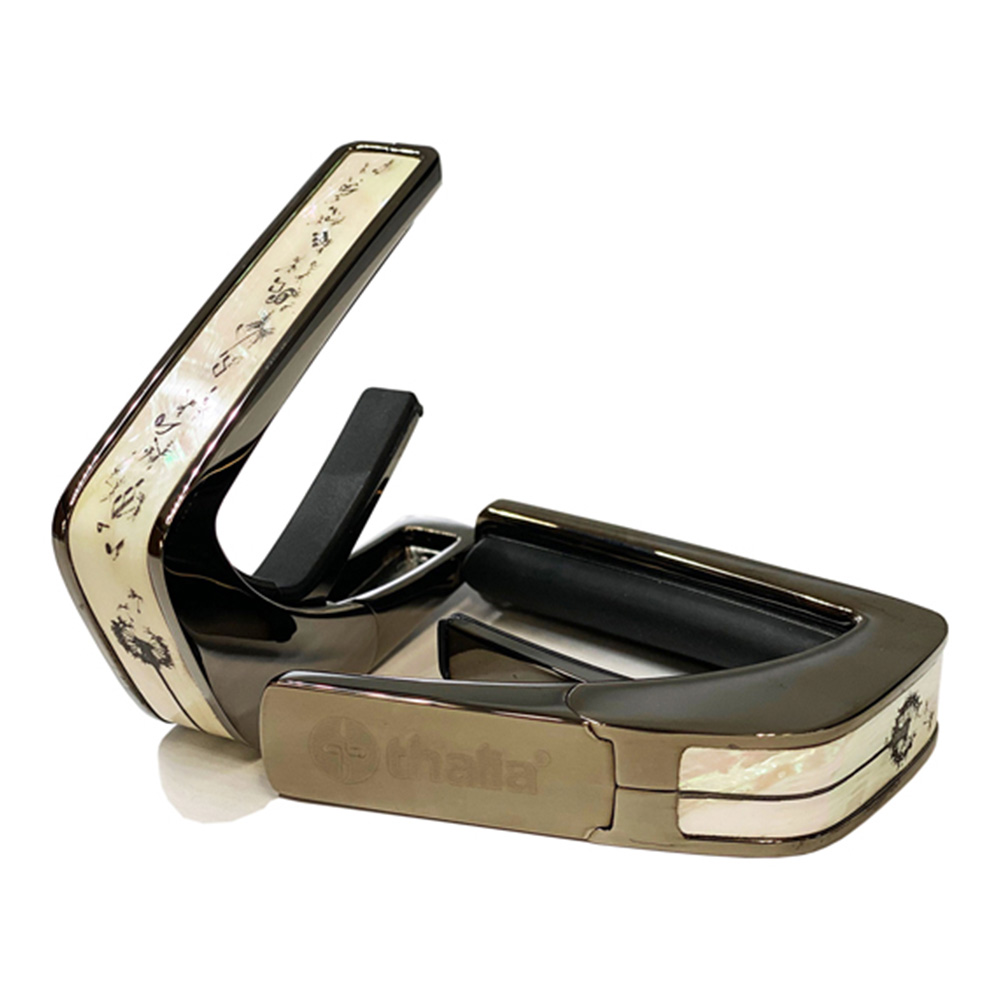

The inspiration behind the family business in Pleasant Hill was inventor and designer Chris Bradley’s daughter Thalia who at eight years old thought it would be a great idea to have capos which matched your guitar. So were honoured when the California-based company sent us two absolutely stunning capos from the Thalia Custom Shop. Add to that the beautiful finish and customizable inlays, and the cost begins to look much more reasonable.Thalia have just sent us a pair of beautiful customised Emerald Guitars capos.Ĭustomers often mention their favourite capo to us and recently the name Thalia has kept coming up. Sixty to 90 bucks is definitely a lot to pay for a capo, but the Thalia 200 does keep your guitar almost perfectly in tune, is a snap to use, and provides added flexibility with a variety of fretpad sizes. But most people prefer a brighter sound, so make of it what you will.Īnd, of course, there's the price. I prefer a more muted tone myself, and thought the rubber fretpad sounded better once re-tuned. Even if you were playing alone, this would require a quick re-tune (unless of course you're an indie rocker who knows being out of tune is cool, even though Pavement called it quits more than a decade ago).Ĭonversely, the guitar's tone was a little more muted with the rubber fretpad compared to the noticeably bright Teflon pad. Again, by slightly I do mean slightly, but the discrepancy from string to string was clearly noticeable. Using the rubber (as opposed to Teflon) fretpads left the guitar slightly sharp as well, but it also pushed the thicker, lower strings a little further out of tune than the higher strings. You can quickly adjust or remove it with one hand-keep strumming, show-off!-and store it above the nut. The 200 is also easy to put on and take off. And intentionally using the wrong fretpads on both guitars definitely had an adverse impact on tuning, further suggesting that Thalia's swappable system make a measurable difference. Using the capo on my kid's little nylon-string Woods guitar (after finding the proper fretpad through trail and error) gave the same results. I'm not even sure I'd have noticed the change in intonation playing with other musicians. If I was playing solo, I wouldn't have noticed, and I had to pull out my tuner to check. All of the strings remained in tune with one another. Clamping it at the second fret left my guitar slightly sharper than it should have been-and I really do mean slightly. If you play a 12-string, a ukulele, or a mandolin, you can buy the appropriate pads. If your guitar isn't listed, Thalia offers a guide for determining your fretboard radius. Simple, and the quick-start guide (a capo with a quick-start guide!) includes a chart showing which size fretpad you need for your make of guitar. My Seagull, for example, has a fretboard radius of 16 inches, so I needed to snap the appropriate fretpad into the capo. By using the correct fretpad, you are essentially customizing the capo to your guitar's fretboard radius.
#Thalia capo series
The 200 series includes a couple of "tuning kits"-two sets of removable Teflon and rubber fretpads (seven of each, 14 total) sized to fit a particular guitar neck. It looks exceptional, and it feels well made.

I reviewed the black chrome version, which in my case also had a blue abalone inlay. The 200 is beautiful, which seems strange to say about a capo. The capo does this with a unique design: a set of swappable fretpads, so you can find the one that best matches the size of your guitar's neck and keeps the intonation drift to a minimum. Thalia makes the bold claim that its new 200 Series capos $60 to $90, depending upon the finish) will change the pitch of your guitar without noticeably impacting the intonation. People generally assume that "better," more expensive capos degrade your intonation less than cheaper ones, but capos almost invariably mess up your tuning. And the relative thickness of the low strings means they're pulled a little harder than the high strings, so the strings can easily go out of tune relative to each another. Capos push harder than your fingers, which will usually make your entire guitar a little sharp.

If you're a guitarist, you've probably heard your instrument go slightly out of tune every time you clamp a capo onto the fretboard.Ī capo is the simple spring-loaded mechanism that raises the pitch of a guitar by pushing down on the strings wherever you place it on the neck.


 0 kommentar(er)
0 kommentar(er)
